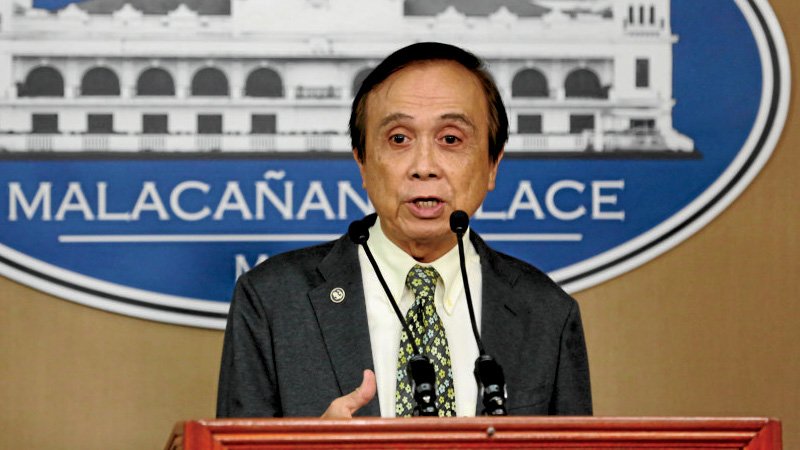PH to compensate for extension of QR on rice, says Neda chief

Socioeconomic Planning Secretary Ernesto M. Pernia (File photo by JOAN BONDOC / Philippine Daily Inquirer)
Economic managers will ask President Rodrigo Duterte to certify as urgent a bill that will slap a tariff on all rice imports in order to finally do away with the quota system and avoid sanctions from the World Trade Organization (WTO), according to Socioeconomic Planning Secretary Ernesto M. Pernia.
Pernia told reporters late Monday that, while the President in April signed Executive Order No. 23, which he said was aimed at eventually lifting the quantitative restriction (QR) on the Filipino food staple, the EO provided for a three-year extension of the QR while in transition towards tariffication.
To ultimately remove the QR, the over one-decade-old Agricultural Tariffication Act of 1996 (Republic Act No. 8178), which put the rice import quota in place, must be amended.
Pernia, who also heads the state planning agency National Economic and Development Authority (Neda), said Sen. Ralph Recto already filed in the Senate a measure to remove the QR.
“In the meantime, as the deliberations in Congress will take some time, what we are trying to do is to not infuriate the members of the WTO, in terms of retaliation,” Pernia said.
Article continues after this advertisementSpecifically, Pernia said: “We are planning to extend the concessions on lower tariffs to certain products or minimum access volume of 5,200 metric tons that will be granted to interested WTO parties up to June 2020 or up to the time Congress approves the official lifting of QR and replacing them with tariffication, whichever comes first.”
Article continues after this advertisementThe concessions would be on agricultural products, Pernia said.
The Neda chief nonetheless said he was hopeful that “the approval of the tariffication will come sooner so that we don’t have to be extending concessions.”
Pernia said Neda would back up the proposal of state-run think tank Philippine Institute of Development Studies to set the import duty on rice at 35 percent.
In 2014, the WTO allowed the Philippines to extend its QR on rice until June 30, 2017, in a bid to buy more time for local farmers to prepare for free trade in light of the government’s goal of achieving rice self-sufficiency.
Since the government imposes a quota on rice imports, domestic prices are vulnerable to shocks resulting from a meager supply.
The QR puts the burden of rice supply and demand on the government, whereas the market forces are being limited by the quota system.
Pundits say importation should be done by the private sector to allow market forces to determine prices.
The extended QR slaps 35-percent duty on imported rice under a minimum access volume (MAV) of 805,200 metric tons. Importation outside of the MAV limit are levied a higher tariff of 50 percent.
The Philippines’ most favored nation rate – the additional tariff imposed when imported outside of the Association of Southeast Nations – on the commodity remains at about 40 percent.
In 1995, the WTO allowed the Philippines to impose a 10-year quota system for rice importation. The QR was extended in 2004, and then lapsed in 2012, before again renewed in 2014. /atm